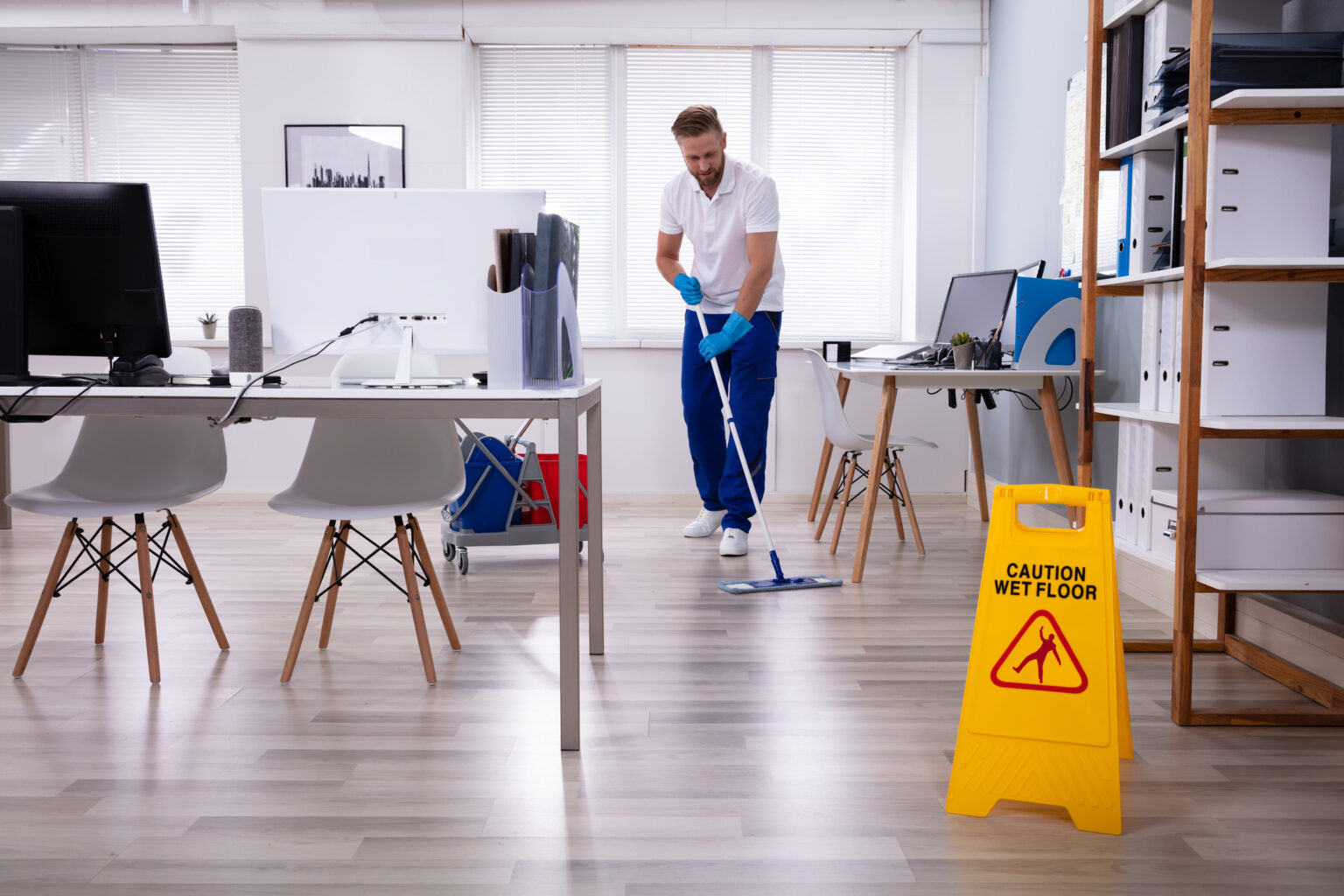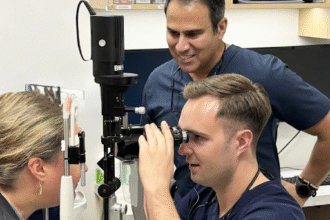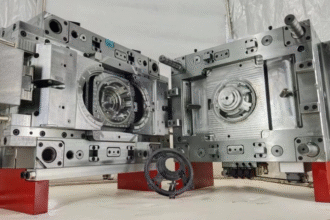In today’s competitive and fast-paced business environment, cleanliness in the workplace is not just a matter of appearance—it’s a matter of health, efficiency, and overall organizational success. From corporate offices and retail stores to industrial facilities and schools, maintaining a clean working environment directly impacts employee productivity, customer satisfaction, and brand reputation. That’s why more businesses are turning to professional commercial cleaning services to handle this essential responsibility.
- Key reasons cleanliness is crucial in work settings:
- Typical environments that require commercial cleaning include:
- 1. General Office Cleaning
- 2. Restroom Sanitization
- 3. Window and Glass Cleaning
- 4. Floor Care Services
- 5. Disinfection and Sanitization
- 6. Waste Management
- 7. Specialized Services
- Typical frequencies include:
- Common tools include:
- Technology Integration:
- 1. Expertise and Training
- 2. Cost Efficiency
- 3. Customizable Solutions
- 4. Regulatory Compliance
- 5. Employee Satisfaction
- Key factors to consider:
- Sustainable practices include:
- Trends shaping the future:
Gone are the days when janitorial work was considered an afterthought or a secondary expense. In the post-pandemic era, workplace hygiene is viewed as a strategic investment. Cleanliness has become a fundamental part of workplace safety, especially in shared and high-traffic environments. This shift has propelled commercial cleaning into the spotlight as one of the most crucial outsourced services for organizations of all sizes.
This article explores the benefits, services, tools, and best practices involved in commercial cleaning and why it’s an integral part of modern business operations.
Why Clean Workspaces Matter
Clean environments influence more than just aesthetics—they affect everything from employee morale to operational efficiency. The workplace is where people spend a significant portion of their day, and its condition has a psychological and physiological impact.
Key reasons cleanliness is crucial in work settings:
- Health and Safety: Regular disinfection reduces the spread of bacteria, viruses, and allergens that can cause illness.
- Productivity and Focus: Organized, clutter-free workspaces improve concentration and reduce stress levels.
- Professional Image: Clients, customers, and partners form immediate impressions based on the condition of the environment.
- Compliance: Certain industries are subject to sanitation regulations that require strict cleaning standards.
For all these reasons, professional commercial cleaning is no longer a luxury—it’s a necessity.
What Is Commercial Cleaning?
Commercial cleaning refers to a broad range of cleaning tasks performed in business or industrial environments. Unlike residential cleaning, which is typically smaller in scope, commercial cleaning involves specialized tools, methods, and schedules tailored for business settings.
Typical environments that require commercial cleaning include:
- Office buildings
- Warehouses and factories
- Retail stores and shopping centers
- Educational institutions
- Healthcare clinics and labs
- Hospitality venues (hotels, event centers)
- Gyms and recreational facilities
Cleaning professionals working in commercial settings are trained to deal with high-traffic areas, shared spaces, and a variety of surface materials, often following strict industry regulations or client-specific protocols.
Services Included in Commercial Cleaning
While the scope of work may vary depending on the type of facility and business needs, here are common services offered by professional cleaning providers:
1. General Office Cleaning
- Vacuuming carpets and mopping hard floors
- Emptying trash bins and replacing liners
- Dusting desks, furniture, and shelves
- Sanitizing shared equipment like phones and keyboards
2. Restroom Sanitization
- Disinfecting toilets, sinks, and surfaces
- Restocking supplies (soap, paper towels, toilet paper)
- Odor control and air freshening
3. Window and Glass Cleaning
- Interior and exterior windows
- Glass partitions and display cases
- Mirrors and entry doors
4. Floor Care Services
- Carpet shampooing and extraction
- Tile and grout cleaning
- Strip and wax for vinyl or linoleum floors
- Polishing hardwood or stone surfaces
5. Disinfection and Sanitization
- Electrostatic spraying or fogging of high-touch areas
- Surface-level disinfection using EPA-approved products
- COVID-19 response cleaning protocols
6. Waste Management
- Sorting and disposal of general waste and recyclables
- Confidential shredding (for documents)
- Disposal of hazardous or bio-waste if applicable
7. Specialized Services
- Post-construction cleanup
- Event cleanup
- High-dusting for ceiling vents, lights, and ducts
- Cleaning of equipment in gyms or industrial facilities
Frequency of Commercial Cleaning
The schedule of cleaning services varies based on the size of the facility, the nature of the business, and specific cleanliness standards required.
Typical frequencies include:
- Daily Cleaning: Common for healthcare, retail, and busy office environments
- Weekly Cleaning: Suitable for smaller offices with minimal foot traffic
- Monthly Deep Cleaning: Often includes carpet shampooing, window washing, and deep disinfection
- Custom Cleaning Plans: Some businesses may combine frequent surface cleaning with less frequent deep services
Flexible scheduling ensures minimal disruption to work activities and maximum convenience for the business.
Equipment and Technology Used
Modern commercial cleaners leverage advanced tools and equipment to deliver better results in less time. This is especially important for large-scale operations or clients with strict requirements.
Common tools include:
- Industrial vacuum cleaners with HEPA filters
- Auto scrubbers for hard surface floors
- Steam cleaners for sanitizing without chemicals
- Electrostatic sprayers for disinfection
- Microfiber cloths and mops to reduce waste and cross-contamination
- Air purifiers for improved indoor air quality
Technology Integration:
- Mobile apps for scheduling and communication
- Digital checklists for quality control
- Cloud-based reporting for compliance documentation
- GPS tracking and time logs for staff accountability
These innovations increase transparency, reliability, and efficiency, making professional cleaning services more effective than ever.
Benefits of Outsourcing Commercial Cleaning
Instead of relying on in-house staff or irregular maintenance, many companies choose to outsource cleaning responsibilities to professionals. Here’s why:
1. Expertise and Training
Professionals are trained in the latest sanitation techniques, chemical handling, and safety standards. They bring a level of skill that general staff may not possess.
2. Cost Efficiency
While hiring a cleaning service may seem like an extra expense, it often saves money in the long run by reducing sick days, increasing productivity, and avoiding equipment damage.
3. Customizable Solutions
Services can be tailored to fit each client’s needs—whether that’s a small office or a large warehouse.
4. Regulatory Compliance
In certain industries like healthcare or food services, failing to meet sanitation standards can result in hefty fines or even shutdowns. Professional cleaners help maintain compliance.
5. Employee Satisfaction
A clean workspace contributes to higher morale, which translates into better employee retention and job satisfaction.
Choosing the Right Commercial Cleaning Provider
Selecting a reliable cleaning partner is critical. The wrong choice can result in inconsistent results, poor communication, or even liability issues.
Key factors to consider:
- Experience in the industry
- Client reviews and references
- Licensing, insurance, and bonding
- Range of services offered
- Green cleaning options
- Availability of emergency or after-hours services
- Transparent pricing and contracts
A reputable company should also conduct regular inspections, respond to feedback quickly, and assign consistent staff to each job site for quality assurance.
Sustainable Cleaning Practices
With growing awareness of environmental issues, many companies now request sustainable or “green” cleaning solutions as part of their service package.
Sustainable practices include:
- Use of biodegradable and non-toxic cleaning agents
- Reusable cleaning cloths and mop heads
- Energy-efficient equipment
- Waste reduction and recycling
- Water-saving techniques
Green cleaning not only protects the environment but also contributes to better indoor air quality and a healthier workspace.
Challenges in Commercial Cleaning
While the benefits are clear, there are also challenges that providers must overcome:
- Staff turnover and training
- Maintaining consistency in large spaces
- Meeting specific industry regulations
- Managing equipment maintenance
- Responding quickly to emergencies or special requests
Professional cleaning providers are constantly adapting their services, investing in training, and upgrading tools to stay competitive and effective.
The Future of Commercial Cleaning
As businesses place greater emphasis on health, hygiene, and sustainability, the commercial cleaning industry is poised for continued growth and innovation.
Trends shaping the future:
- AI-powered cleaning robots for autonomous floor care
- Touchless sanitizing stations in high-traffic areas
- Real-time cleanliness monitoring through IoT sensors
- Subscription-based models for ongoing service delivery
- Increased demand for green certifications and eco-compliance
These trends highlight the evolution of cleaning from a behind-the-scenes task to a central aspect of modern business operations.
Conclusion
In an era where cleanliness equates to safety, professionalism, and operational excellence, commercial cleaning has emerged as a vital service for businesses across every industry. From improving workplace health to enhancing brand reputation, the benefits of professional cleaning services are measurable and lasting.
Outsourcing cleaning responsibilities allows businesses to focus on their core goals while ensuring their environments remain spotless, compliant, and welcoming. As technology and sustainability continue to shape the future, the role of commercial cleaning will only become more critical in fostering productive and hygienic workplaces.
Whether it’s an office, retail space, or industrial facility, maintaining a clean environment is not just smart—it’s essential. And with the right cleaning partner, businesses can operate with greater confidence, knowing their space is in expert hands.

















